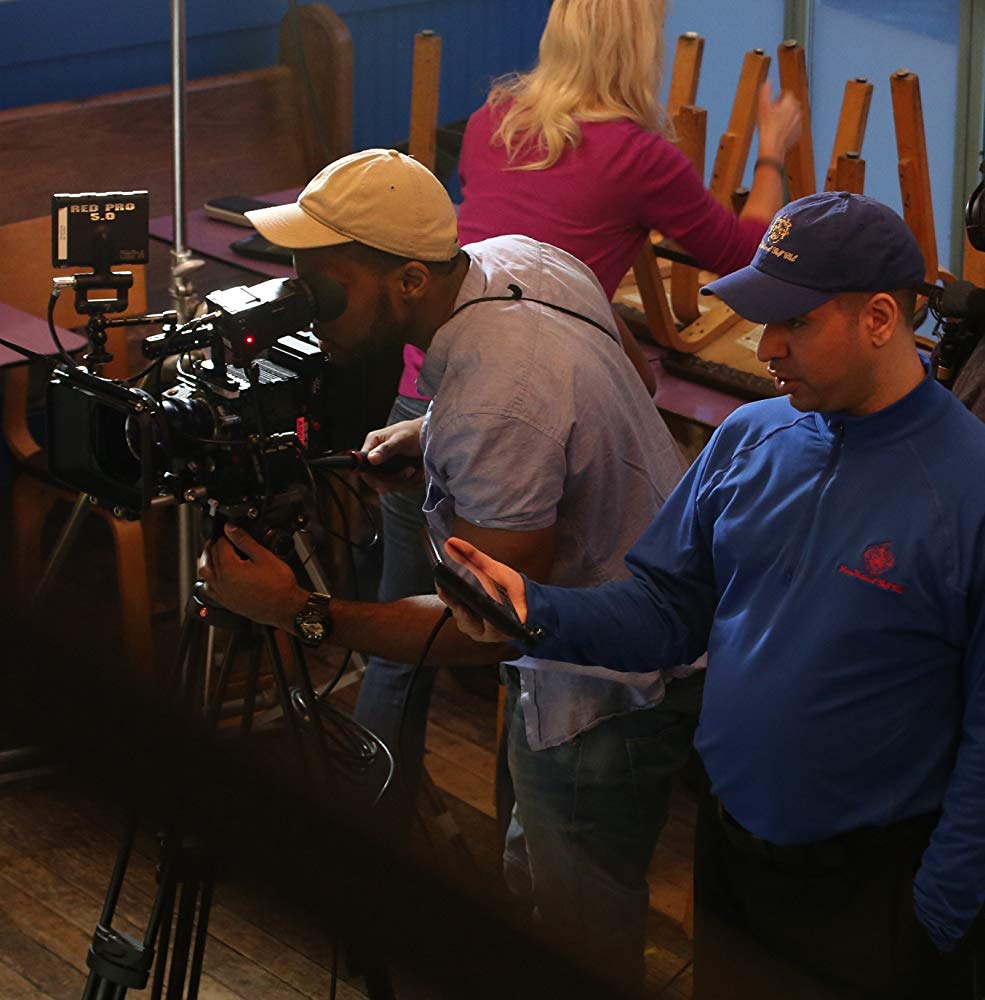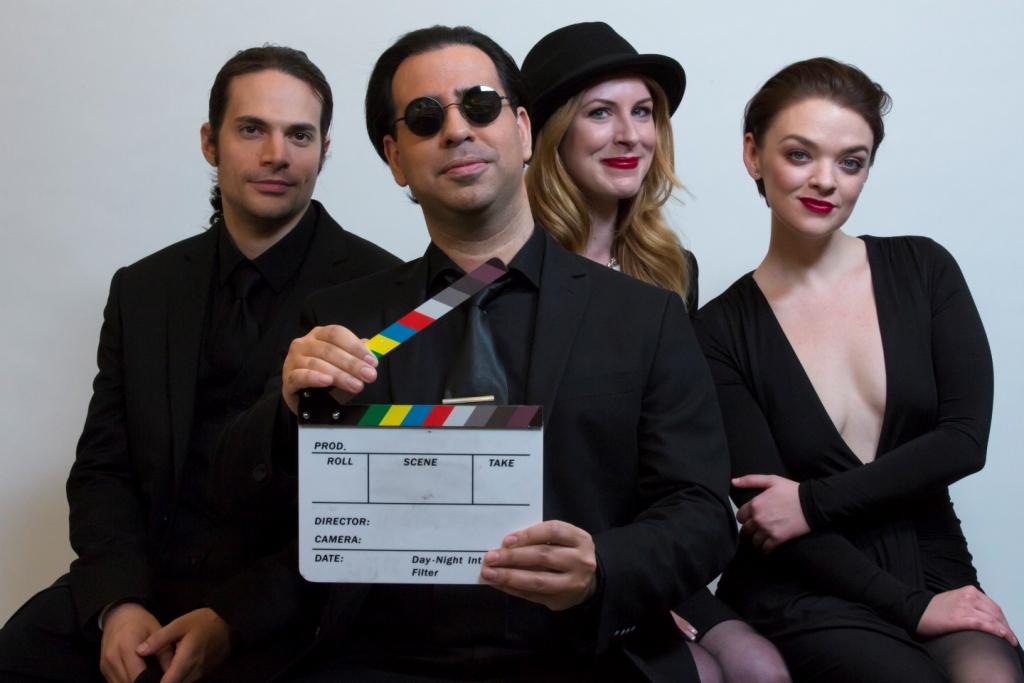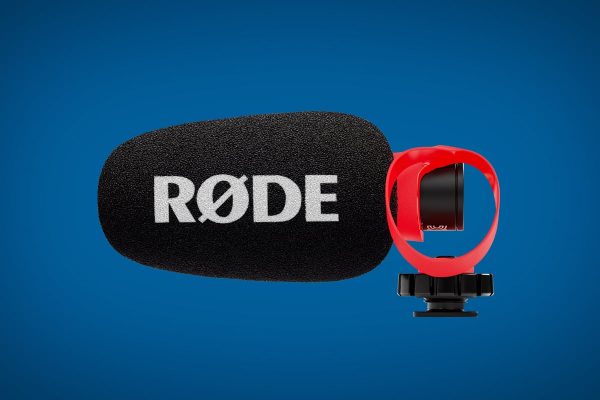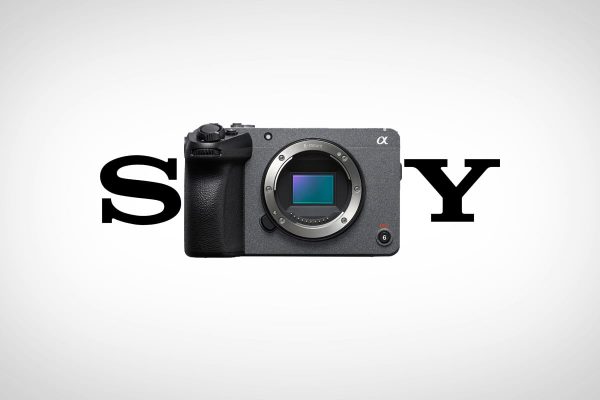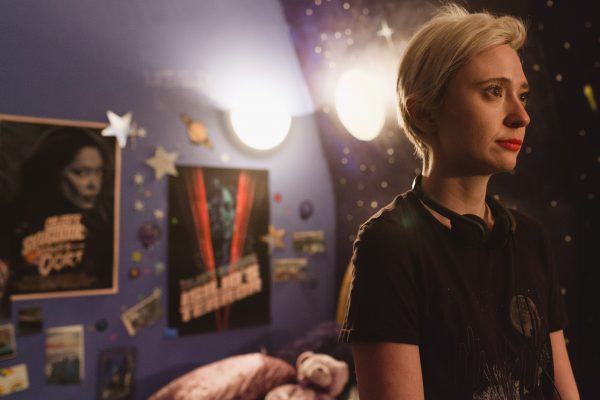Have you ever wanted a DIY guide to making a film? well we have found one!As a filmmaker we face many challenges and unfortunately there is no substitute for experience. Experienced Director and Filmmaker Usher Morgan has put pen to paper or should we say finger to key and written the complete guide to life on set.
After releasing his debut feature film to wide acclaim, filmmaker Usher Morgan (Prego, Windblown, Pickings) decided to write a filmmaking book which detailed his approach to writing, directing, and producing his own work, as well as the steps he took to distribute and market his film, Pickings, and release it to theaters across the nation.

Lessons from the Set: A DIY Guide to Your First Feature Film from Script to Theaters is the perfect addition to any aspiring filmmakers library, it’s an essential guide for anyone who wants to tell stories and make movies for a living.
Video And Filmmaker sat down with Usher to find out how he became a filmmaker and the lessons he has learnt along the way.
Take us back to the beginning, tell us what first sparked your interest in Filmmaking?
I’ve always wanted to be involved in film, ever since I can remember. Then when I was about 13-years old or so I watched the “behind the scenes” DVD of The Matrix at a friend’s house and became obsessed with VFX, and for a long time, that’s what I thought I was going to do.
At what age did you decide to pursue filmmaking as a career and what steps did you take to make it happen?
In 2012 (just short of my 27th birthday) I ended up on the producing end of a documentary film called The Thought Exchange with David Friedman and Lucy Arnaz. That was the trigger that brought back my youthful obsession with cinema and filmmaking. I started writing my first short comedy film (Prego) and the rest is history.
Did you have a big break in your career or did you just slowly build your profile in the industry?
I did post-production for a long time, so I was working as an editor and VFX super for low-budget indie films. When the time came to make my own stuff I wasn’t sure that I had something special to bring to the table. I didn’t know whether or not people would like my “voice”. Once Prego went viral and started winning all these awards that gave me the confidence I needed to move ahead and plan my next step. So I’d say it’s probably a combination of both.
If you think back over your career, what were the roadblocks you had to overcome and how did you overcome them?
Every step is a roadblock, whether it’s not having enough money, time, resources, or not having the right team. The first few projects are ALWAYS a struggle. But the thing I learned is that your passion and obsession will always trump any excuse you may have for not doing what you’re supposed to. If you really love movies, and you see yourself as a filmmaker then that’s what you’ll be. The only real road-block is the one you have inside your own head. If you can tackle that, the rest becomes much easier.
When you are planning a shoot, take us through your process that you like to follow.
I visualize a lot, I plan meticulously and listen to music, that always helps. I also tend to trust the people I work with. My team is pretty familiar with my quirks and by this point they know how to anticipate my needs. My job is to just plan ahead as much as I can and then articulate my vision to the people around me – explaining what you want is 80% of the battle, and I use a lot of visual aids to keep things clear, since my brain can be a little too cluttered.
How do you decide what camera, lens and lighting package you will shoot on and do you have a favorite?
That really depends on the project. Every project needs a different set of tools. I’m really in love with the Blackmagic Ursa 4.6K and the Blackmagic Pocket 4K cameras, they’re amazing, and I’ve shot the last 4 projects using those cameras. I also have an obsession with vintage lenses, I shoot on Zeiss most of the time, but when I can – I go vintage.
Your new book is a must read for any filmmaker, director or DOP that wants to learn the ins and outs of life on set and its full of very useful information but let’s go back in time. Can you give us 3 pieces of advice that you would give yourself at the beginning of your career?
01 – Trust yourself more.
When you make a movie, the people you surround yourself with are always more than happy to share their thoughts and opinions on what it is you do and how it is you go about doing it. If its people you like and admire you’ll be tempted to go against your own gut feeling and make decisions that are based on popular opinion. That’s NOT a good idea. I’m very aware of myself when I’m on set. I hire amazing people and I listen to what they have to say, but when I think I’m right – I go for it, regardless of what everyone else has to say.
02 – Treat your crew well
Moral on set is something that people don’t think about too much until they hit day 17 and the atmosphere turns toxic. I learned firsthand how important it is to keep a chill set, play music, have fun, buy some afternoon treats for the crew, look after my actors, keep lots of GOOD FOOD on set, and wear a smile even when things get tense.
03 – Be a Business-Man
Show business is a business, a movie is a product, and like any other product it needs to be released strategically, it needs a marketing strategy and when it finally hits theaters it needs to be profitable. Trusting in my entrepreneurial spirit was the best decision I made since I started making movies. And if I can go back I’d tell myself to keep that spirit in mind when the product is being planned in pre-production, when it’s being made, and when it’s finally being released. Being able to switch from artist to business-person was the only reason I got this far.
